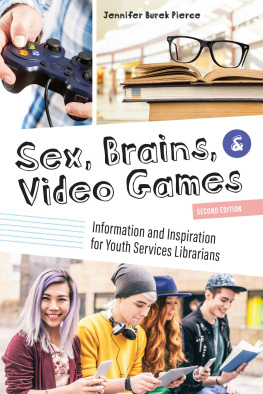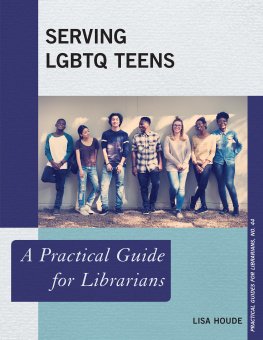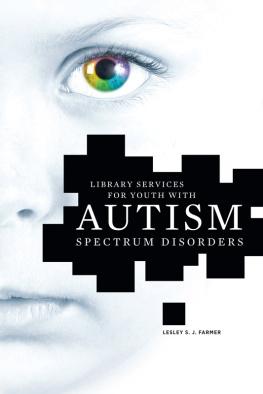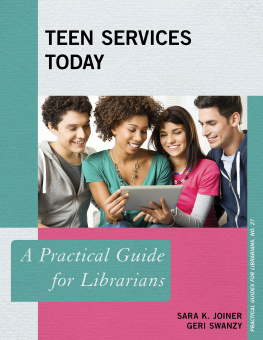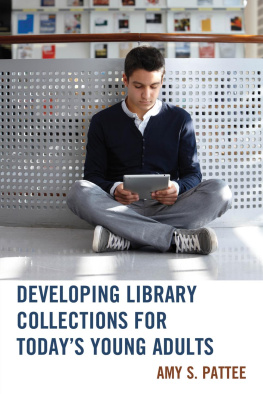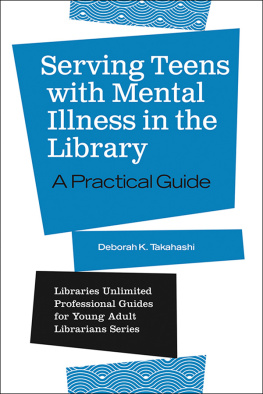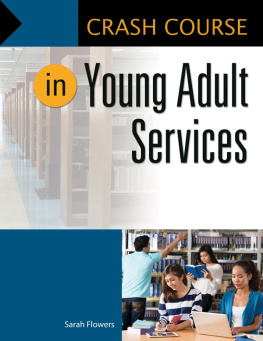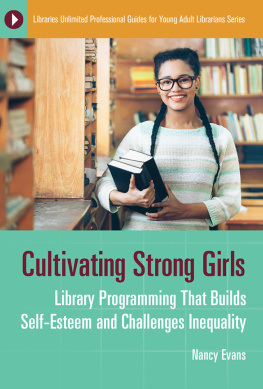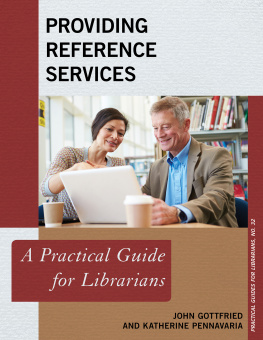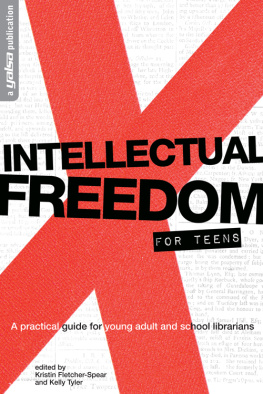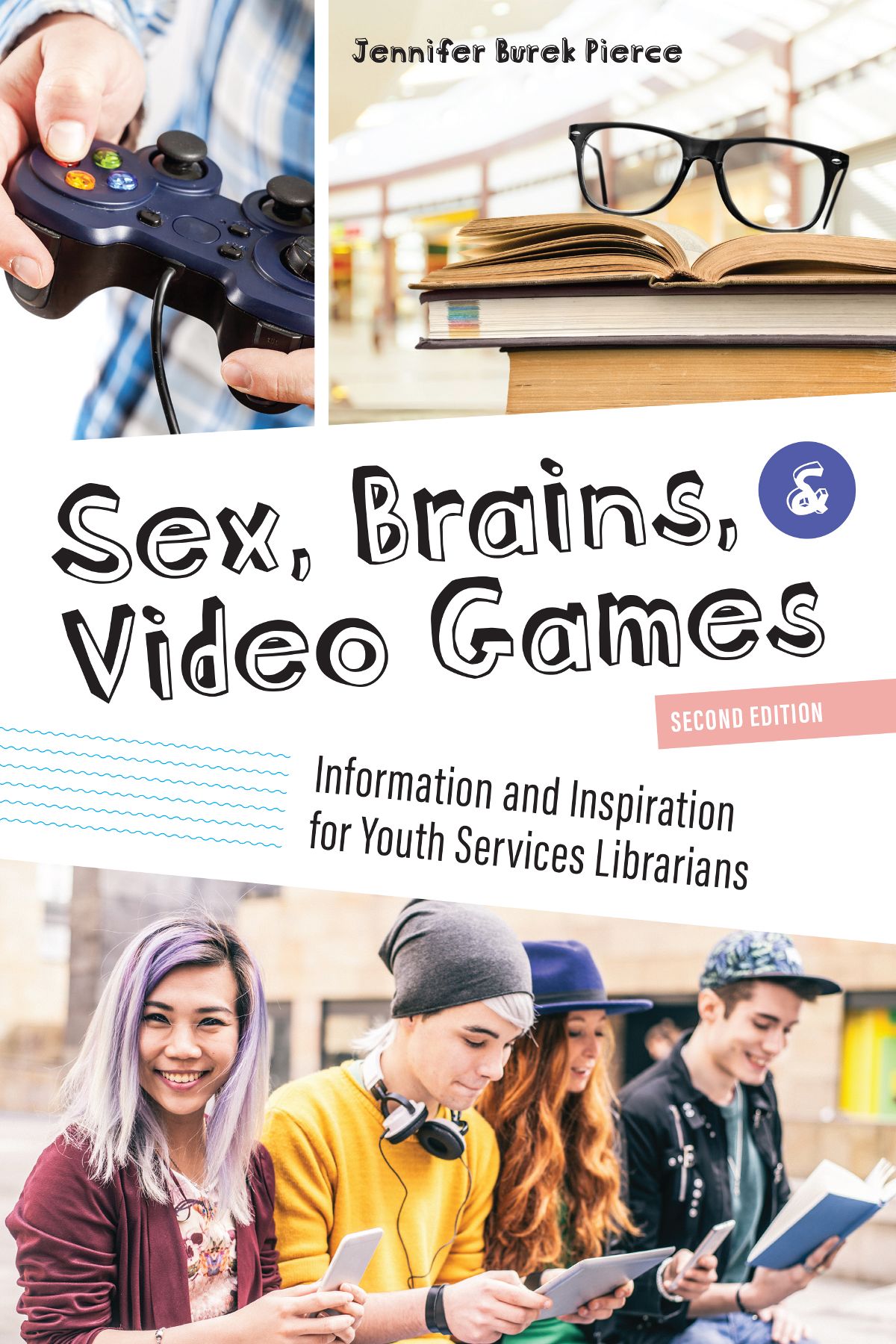
ALA Editions purchases fund advocacy, awareness, and accreditation programs for library professionals worldwide.
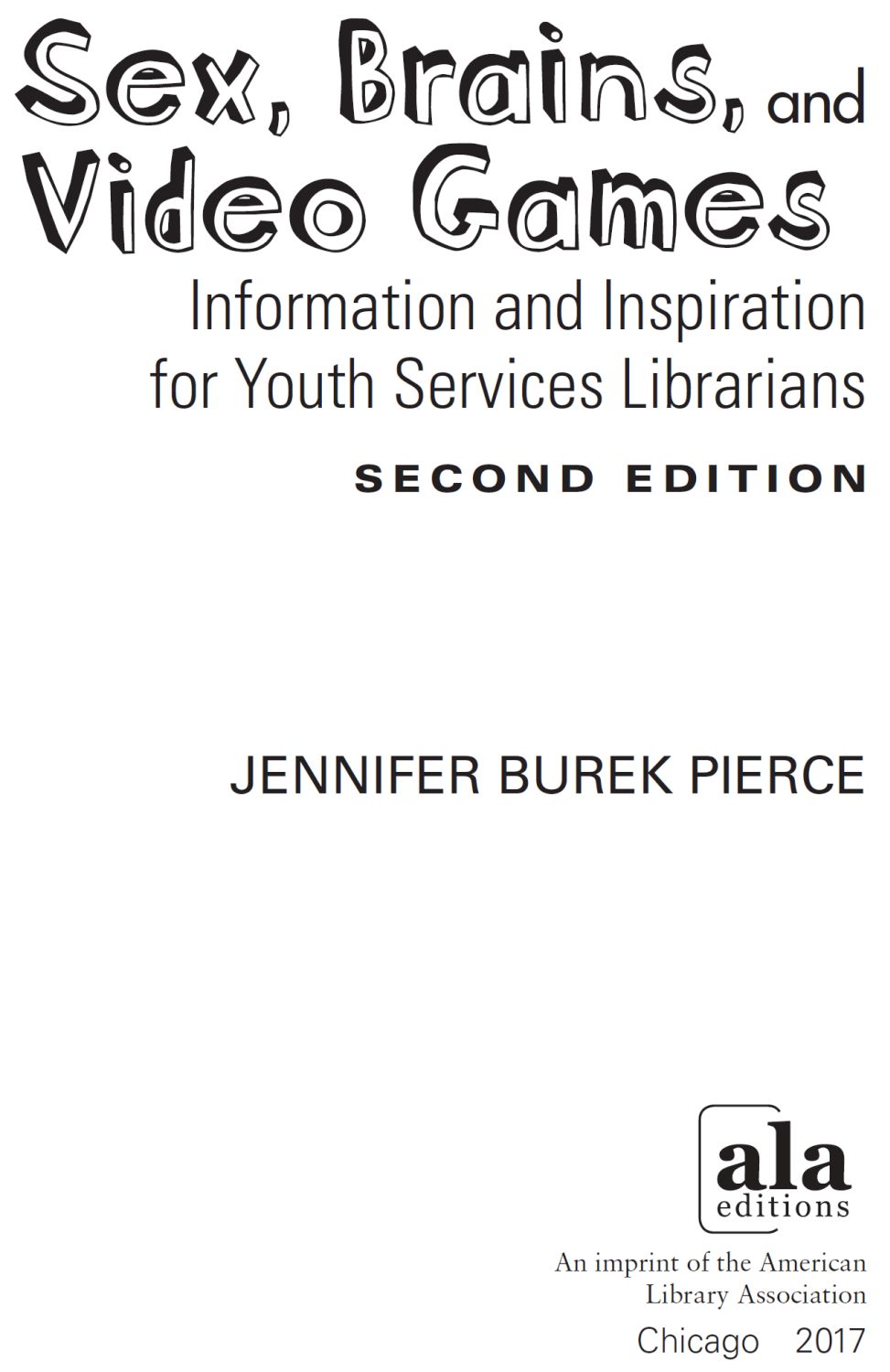
Jennifer Burek Pierce is associate professor in the School of Library & Information Science at the University of Iowa. Books, games, and toys for young people are of particular interest to her, as is the marketing of these materials. Her books include What Adolescents Ought to Know: Sexual Health Texts in Early 20th Century America (UMass Press, 2011) and Sex, Brains, and Video Games: A Librarians Guide to Teens in the Twenty-First Century (ALA Editions, 2008). She developed the Youth Matters column for American Libraries and has also written for The Chronicle of Higher Education. She serves on the advisory board for the Iowa Initiative for Sustainable Communities, the University of Iowas center for community engagement.
2017 by the American Library Association
Extensive effort has gone into ensuring the reliability of the information in this book; however, the publisher makes no warranty, express or implied, with respect to the material contained herein.
ISBNs
978-0-8389-1548-6 (paper)
978-0-8389-1549-3 (PDF)
978-0-8389-1550-9 (ePub)
978-0-8389-1551-6 (Kindle)
Library of Congress Cataloging-in-Publication Data
Names: Burek Pierce, Jennifer, author.
Title: Sex, brains, and video games : information and inspiration for youth services
librarians / Jennifer Burek Pierce.
Description: Second edition. | Chicago : ALA Editions, an imprint of the American
Library Association, 2017. | Includes bibliographical references and .
Identifiers: LCCN 2017001197 | ISBN9780838915486 (pbk. : alk. paper) | ISBN
9780838915493 (pdf) | ISBN 9780838915509 (epub) | ISBN 9780838915516
(kindle)
Subjects: LCSH: Libraries and teenagersUnited States. | Young adults libraries
United States. | AdolescenceUnited States. | TeenagersUnited States.
Classification: LCC Z718.5.B87 2017 | DDC 027.62/6dc23 LC record available
at https://lccn.loc.gov/2017001197
For MRB and HS
Contents
APPENDIXES
N umerous individuals supported the first edition of Sex, Brains, and Video Games, which was my first book. Among them were professor emerita Mary K. Chelton, former American Libraries editor and publisher Leonard Kniffel, retired AL senior editor Beverly Goldberg, and Bethany Templeton Klem, now head of childrens services at the Bedford Free Public Library in Massachusetts. Michael Bonin was responsible for my introduction to Jay Giedds theories, the lynchpin of this work, and more, and Herb Snyder read pages and pages of prose in the process of its completion. The new edition was no less involved, and multiple people were instrumental to its completion. They include Mary Smith of the Mount Prospect Public Library in Illinois, who invited me to speak about the themes of this book for LACONI. University of Iowa graduate assistant Andy Petersen helped to compile the research that supported the presentation, and Kery Lawsons work formatting and reading chapters during the revision process was a tremendous asset. Colleagues Rachel Black, Chelsee Bumann, Kara Logsden, Kate McDowell, Lindsay Mattock, Beth Paul, and Cindy Welch read sections of the manuscript in progress, and I appreciate their willingness to preview and comment on my work. ALA Editions editor Jamie Santoro has been a warm, patient, and gracious guide along the way to this new edition. Without these individuals and ALA Editions editors and staff, then and now, this project would have been inconceivable. My debts, and my gratitude, are deep.
T he first edition of this book began ten years ago. Following an Urban Libraries Council conference in Chicago, where I learned about innovative work on adolescence in cognitive science and sociology, I began to refer to those theories of development in my popular and scholarly writing. These articles were regarded as the first ones in library and information science (LIS) to acknowledge the work of pioneering researchers like Jay Giedd, whose findings reshaped paradigms used to explain the maturation processes that play out during the teen years. As interest in that emerging brain research grew, I was asked to write the book that became Sex, Brains, and Video Games: A Librarians Guide to Teens in the Twenty-First Century, and ten years later, evolving research and other developments prompt its revision. Key concepts, including the history of young adult services and the nature of research on adolescence and U.S. adolescents, preface a fuller explanation of prevailing themes in our encounters with teens.
Although much has happened since the first decade of the twenty-first century, I have the good fortune to
Meanwhile, the research that was beginning to offer distinctive conclusions about adolescence has gained explanatory power and depth. Where there was much curiosity about better understanding the teen brain, these days one can find defensive, even angry, critiques of the empirical research that has sought to better understand how teens change during puberty and adolescence. Then, we had a handful of articles that encouraged awareness of the complexities of gender identity, and now we witness both significant advances in LGBTQ rights and adamant political opposition. Many dynamics, whether the result of research, technology, or social change, encourage a new look at contemporary adolescence.
At the opening of the 2016 Public Library Association conference, Sari Feldman observed that libraries are a lifeline for people at every key transition in their lives. Further, the number of studies showing that teens with strong support from their families fare better both during adolescence and after is increasing. Many conditions suggest the value of a shared understanding of what it means to be an adolescent, considered broadly rather than from a narrow, discipline-specific construct.
One reason to think about what researchers in cognate fields know about teens lies in our own fields renewed attention to community engagement and partnerships. As we work with others to make teens welcome in our libraries and connected to our communities, interdisciplinary knowledge, specifically a thorough, contemporary understanding of adolescence supported by research from fields like education, sociology, and communication, should guide our approach to this time of change in a young persons life. This book supports librarians efforts to gain familiarity with those ideas.
THE PURPOSE OF YOUNG ADULT SERVICES, THEN AND NOW
When we provide library services to young adults, we aspire to two fundamental objectives: to engage adolescents through meaningful and appealing responses to their recreational and informational needs, and to support good outcomes for young people as their roles change. This dual purpose creates a balancing act for library professionals These are two instances of the professions openness to teens, signals that despite the all-too-easy-to-find historical statements that disparaged adolescents, some leaders looked for a way to respond to young adults distinctive needs. What it means, on the one hand, to make the library a welcoming environment for teens, while on the other, to help them assume adult roles, has varied considerably over time. A quick glance at the professions past offers examples of librarians ideas about youth services that contrast starkly with our own, as well as similarities to our present ideals.
Next page
